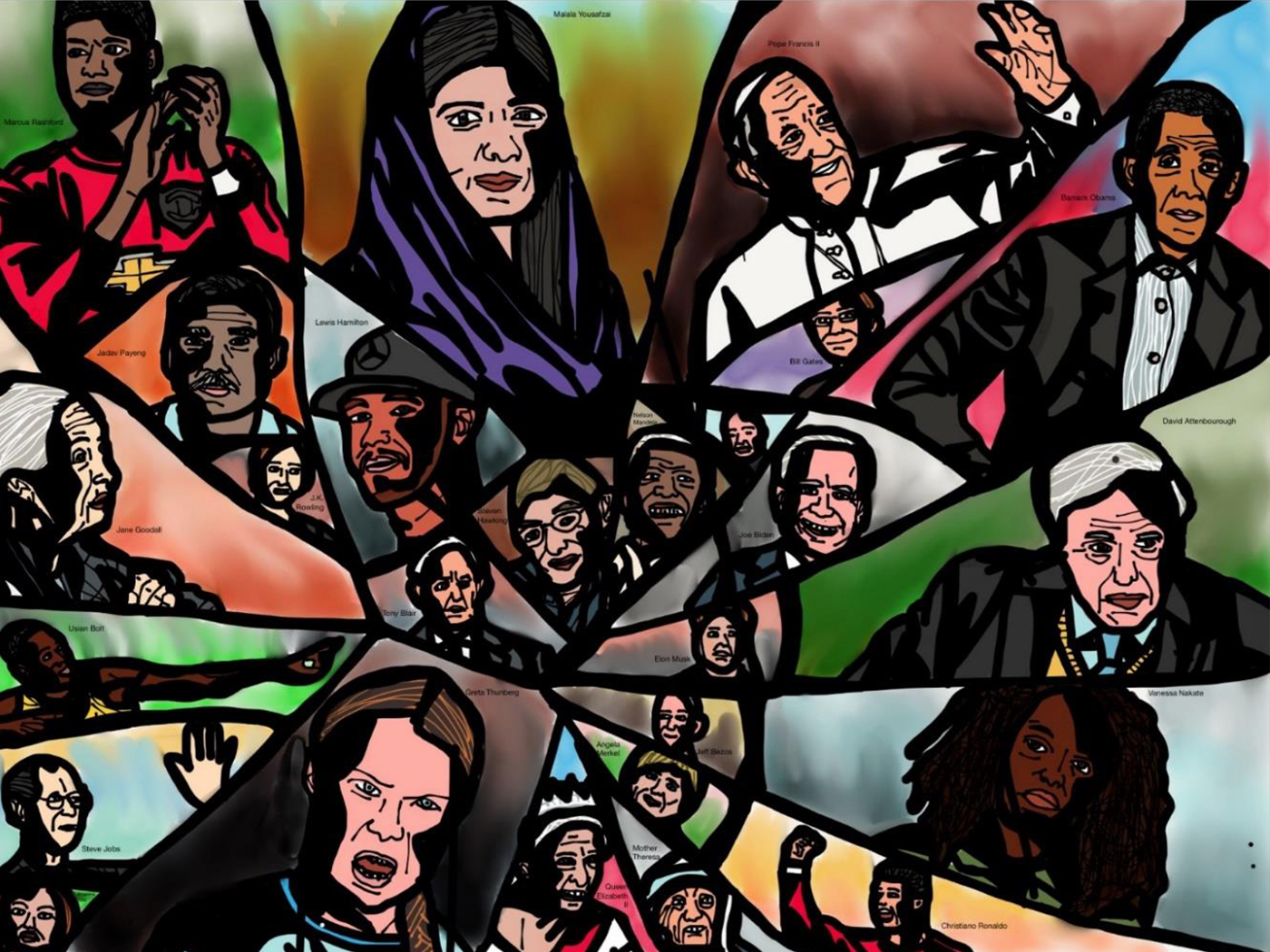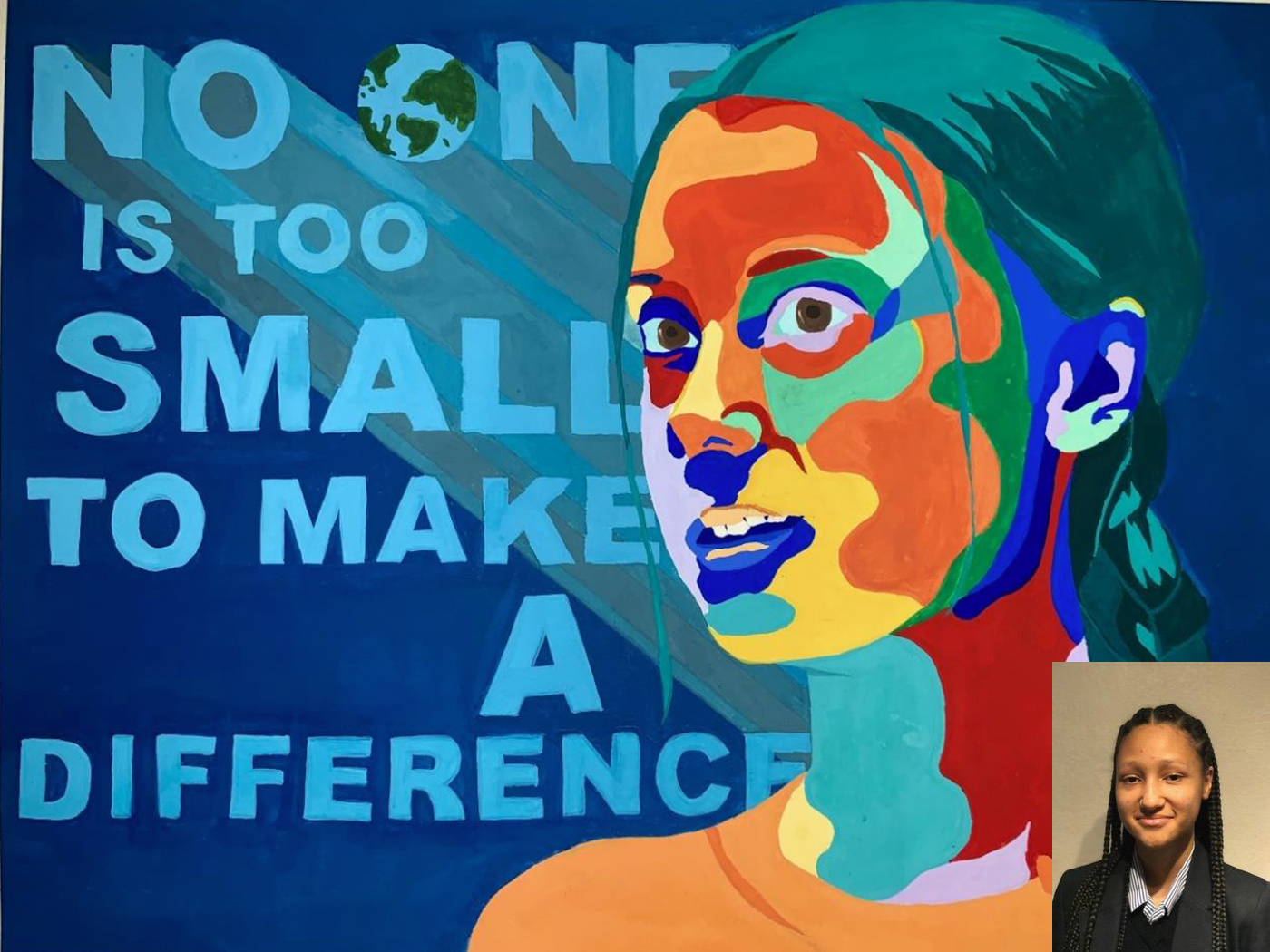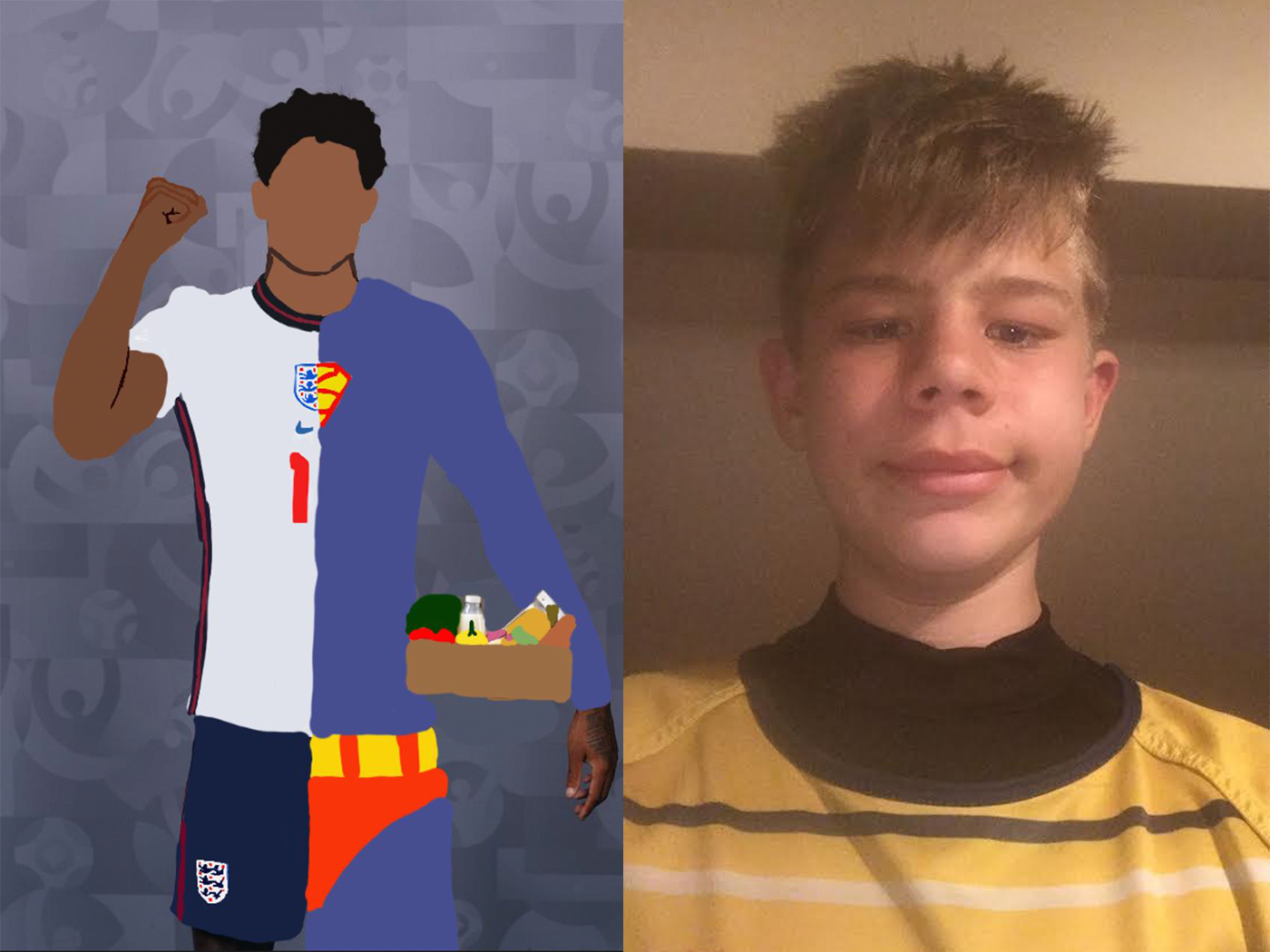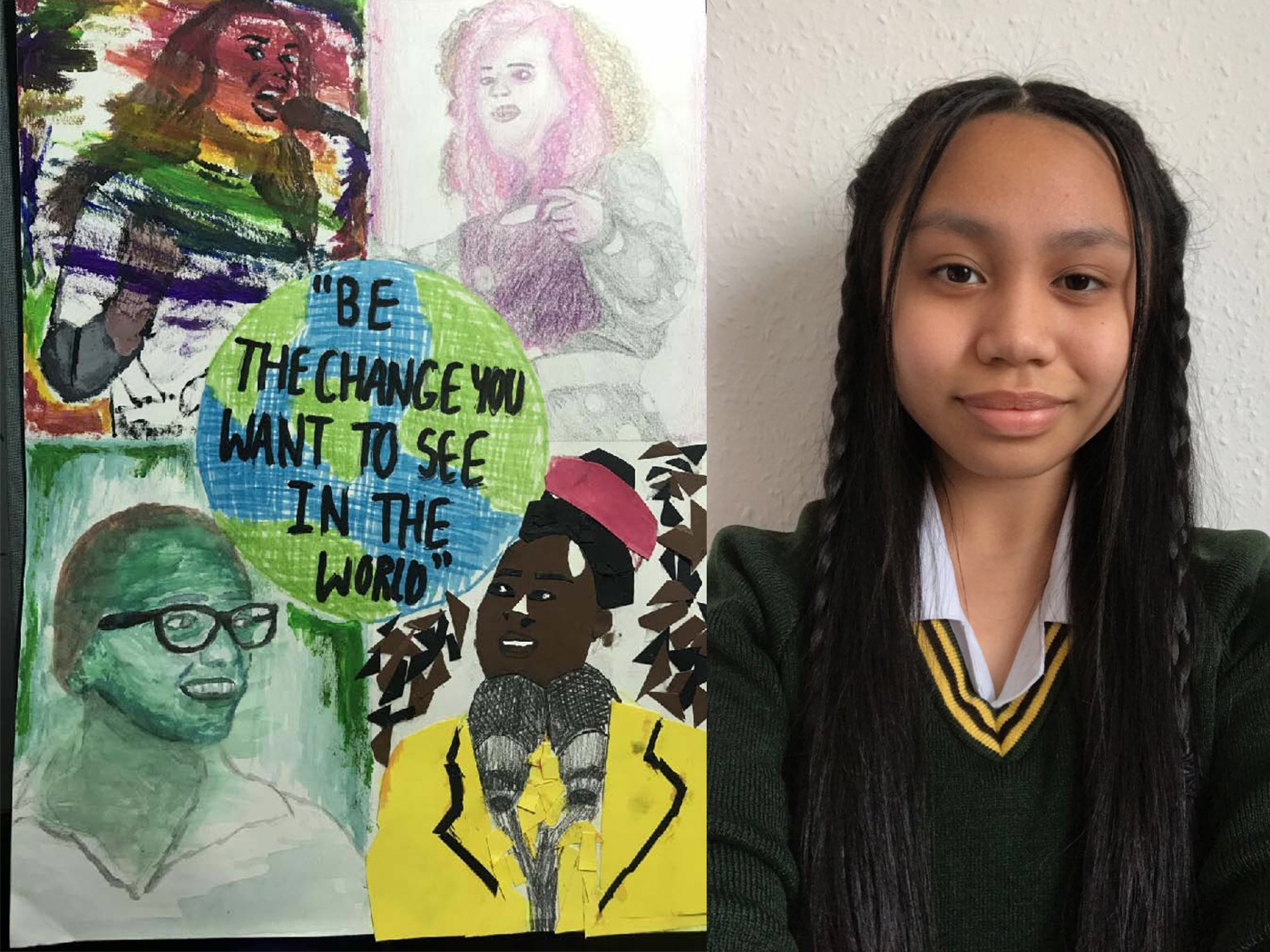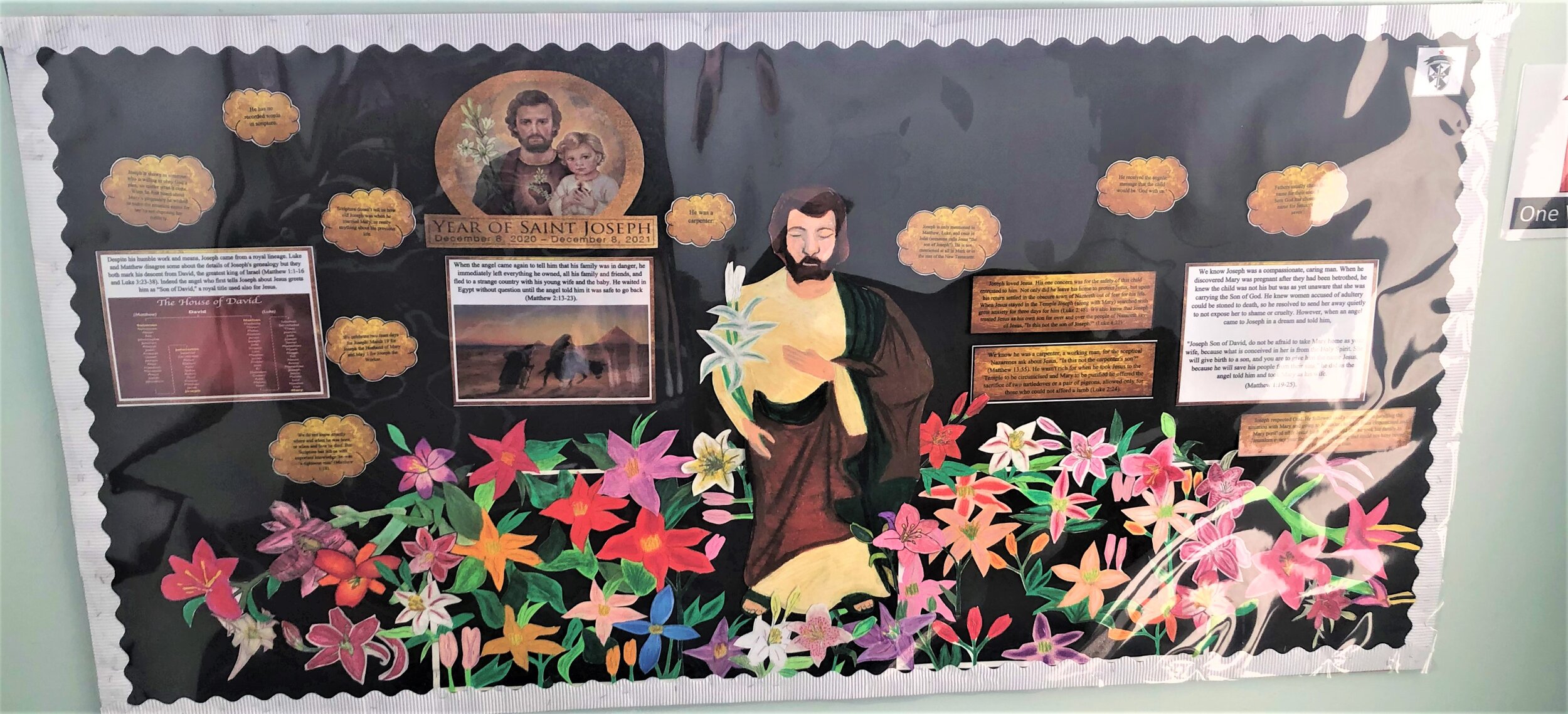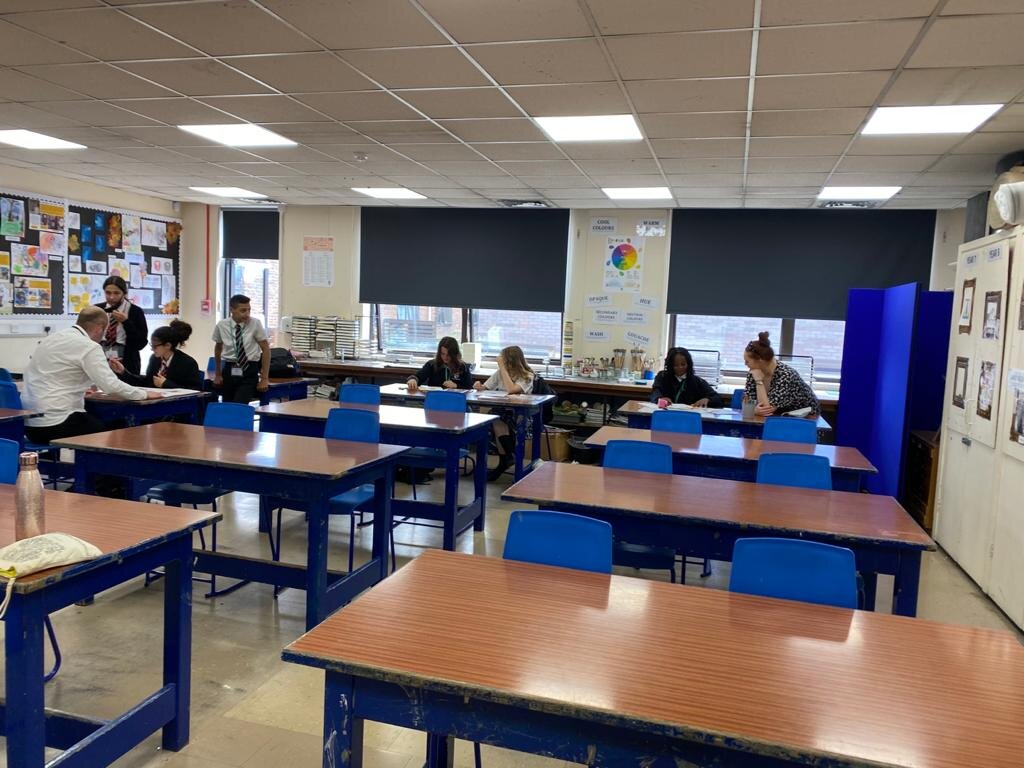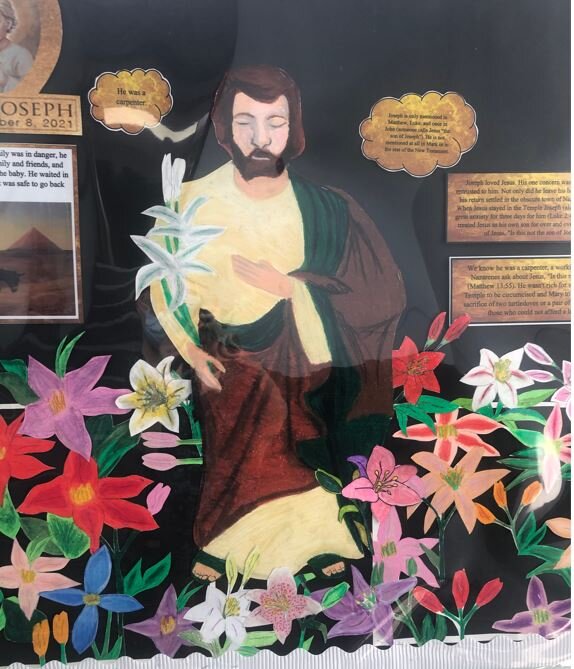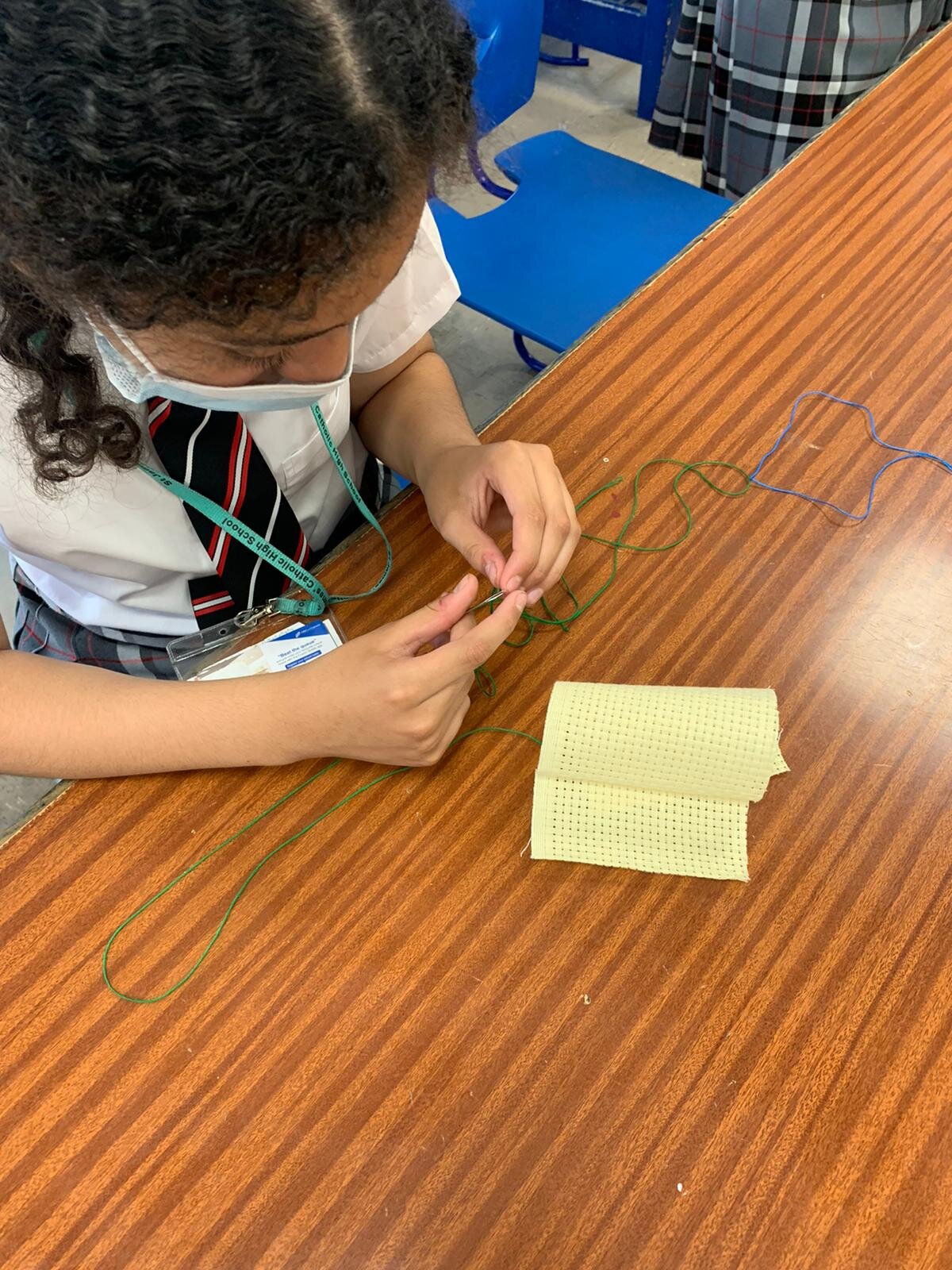Your Custom Text Here
Towards Hope: Strategy 2023-28
On this feast of St John Bosco, patron saint of young people, and the twelfth anniversary of Million Minutes, we are excited to share our new three year strategy entitled ‘Towards Hope: A Journey of Inclusion, Accompaniment and Renewal’. Looking forward to the next three years we have placed the theme of ‘accompaniment’ at the heart of our work and our mission is to equip the church to more effectively accompany all young people.
To engage in an authentic process of accompaniment we have to walk alongside young people and start listening out for the voices and needs that are highlighted. By working in this way with young people and their communities, we hope to respond to and empower young people and deliver projects that are both youth-centred and transform communities.
‘I am delighted to share some of our hopes and plans for the next three years on such a special feast day. I take inspiration from the life of St John Bosco who gives us a great example of reaching out to young people, meeting them in their environments and communities with a gentle presence and loving kindness. He was renowned for literally walking alongside young people in whatever situations they faced and for advocating for change on behalf of their needs in the height of the industrial revolution, in 19th century Italy. He was considered progressive, innovative, an ‘interrupter’, even counter-cultural; he challenged the status quo by putting the needs of young people at the heart of societal change.
Young people today live in a very different physical world to 19th century Italy. They are living in the midst of a digital and technological revolution in an vastly different geopolitical space. Though their needs may differ but we may take inspiration and hope from St John Bosco who reminds us to ‘read the signs of our times’ and meet the needs of young people where they are at. We know that this process of accompaniment works and can unlock meaningful encounters and the potential for working together for change. We a thrilled to invite others to work together with us to truly understand and serve the needs of young people in our communities.’ - Anita Motha, CEO Million Minutes.
To read more about our plans and dreams for 2023-25 download the strategy paper and contact us to find out how you can support our work.
Farewell Daisy - and welcome Anita!
Farewell to Daisy
This week, we say farewell to Daisy, as she journeys on to another CEO role in the youth sector.
Daisy writes, "The scale of what we've been able to achieve during the pandemic, from getting our Beacon Parish Scheme off the ground, to re-launching our Celebrating Young People Awards, whilst promoting an inclusive and open Church that welcomes all young people, is testament of the tenacity and courage of young people across Catholic communities, fighting for a Church with truly 'open doors' in the words of Pope Francis. I have been lucky enough to meet some incredible people in post, and will cherish most fondly our work on LGBTQ+ inclusion as well as the tole of young women in the Church, as well as collaborations with other organisations. I wish Anita and the team all the very best, and I wish the Church continued deepening in understanding of unconditional acceptance and love that makes us all richer."
We are grateful for Daisy's leadership, inspiration, and dedication during her time at Million Minutes. We wish her well in her new role.
Welcome to Anita
We are delighted to announce the appointment of our next CEO. Anita Motha.
Anita will join the team as CEO in May 2022, bringing over fourteen years of experience working and volunteering within Catholic youth ministry and international development. She holds a BA in Music from Newcastle, and a Masters in Education and International Development from Institute of Education, University College London.
She has worked for CAFOD developing and delivering their young adult engagement strategy. Prior to this, she managed Bosco Volunteer Action, the international volunteering programme for the Salesians of Don Bosco for six years. She also has experience volunteering for Christian Aid and worked as a school chaplain in the north east of England. Most recently, Anita has served as Vice-Chair on the Board of Trustees for Million Minutes.
Having grown up across London, Hong Kong, and Dubai, Anita now lives in the Diocese of Brentwood with her husband and two young children.
Million Minutes Chair, Ewan Day-Collins, said, "I am excited to welcome Anita as our new CEO. She brings a wealth of experience and knowledge, and will us into our next stage of development. I and the Board are grateful for Daisy's leadership during her time as CEO. She leaves a strong legacy from which Anita can build"
Million Minutes’ launches its Celebrating Young People Awards 2022
We are thrilled to announce that our popular Celebrating Young People Awards 2022 nominations are now live! These social action awards comprise six awards recognising children and young people specifically (inspired by each of the values of Catholic Social Teaching), one recognising youth workers, and one new award recognising religious and clergy. Applicants will have until mid May to nominate a young person doing amazing social action work or someone working on behalf of young people, and Award recipients and nominees will be announced at an event held in the Palace of Westminster in July 2022, in an event hosted by Siobhain McDonagh MP with special guests in attendance.
We are also proud to announce the launch of a new Award, in collaboration with The Jesuits in Britain, which celebrates clergy and religious who are committed to social action and parish transformation in their communities that is inclusive of young people. The Rutilio Grande & Companions Award will be part of the well-established Celebrating Young People Awards suite.
This Awards suite features six awards that specifically recognise the actions of young people in support of Catholic Social Teaching (The Jimmy Mizen Award for peace, The Dorothy Day Award for community service, The Barbara Ward Award for care for creation, the Josephine Bakhita Award for protecting human dignity, The Cardinal Hume award for living out the option of the poor, and the Joseph Cardijn Award for protecting dignity of labour presented with the Young Christian Workers movement), and an additional award, alongside the Catholic Youth Ministry Federation, which recognises exceptional youth ministry.
To date, almost one thousand young people have been nominated for Million Minutes Celebrating Young People Awards, giving Catholic schools, retreat centres and parishes a means by which to recognise and celebrate young people, as the next generation of social action leaders. Previous award winners have included 18 year old Shanea Oldham from Newham, who won the Jimmy Mizen Award in 2019 for her reconciliation efforts in her community, Jehanut Bari who won the Dorothy Day Award in 2019 for her work in facilitating inter-religious dialogue in Brentwood, and 18 year old Harry Wale in Wigan who won the Cardinal Hume Award for his community work with those facing financial crisis. You can survey our full list of previous award winners from 2019 here.
CEO of Million Minutes, Daisy Srblin, said: ‘We are so excited that after two whole years of uncertainty, we can relaunch our ground-breaking Celebrating Young People Awards for 2022. Young people have been at the forefront of social action during the pandemic, organising food banks and caring for the vulnerable, despite being some of the worst-affected economically, educationally and socially by the last two years. We cannot wait to read and share stories of amazing young people who have been serving their community, to give young people the recognition they deserve. We are also very proud to continue hosting the CYMFED Award, celebrating a youth worker or chaplain working with young people in open and inclusive ways, and the new Rutilio Grande & Companions Award, hosted with the Jesuits in Britain, celebrating members of religious orders and clergy who work for the common good in a way that is proactively inclusive of all young people. We encourage teachers, parishioners, priests, religious, youth ministers, catechists and all those who work with young people in a Catholic setting to consider nominating today.’
We encourage all those who have met inspiring young people or those working with young people, in Catholic settings, to consider submitting an application. Young nominees do not need to be Catholic to be nominated and recognised – and you can access a full list of FAQs here. Young nominees will also have the chance to be considered for a small youth social action grant to continue and strengthen their community work.
Applications for the 2022 Celebrating Young People Awards are open! Visit https://millionminutes.org/national-awards to nominate
Please get in touch with the team with any questions on awards@millionminutes.org
Columban Missionaries announce young 'Changemaker' winners
The winners of the Columban Missionaries’ ‘Changemaker’ media competition have been announced. Young people aged 13 to 18 years old from around the UK were invited to submit articles and images exploring the subject: ‘Anyone can make a difference: 21st Century Changemakers’. Inspired by Catholic Social Teaching, young people were encouraged to reflect on who in the world today is doing something about inequality, injustice, exclusion and environmental degradation, and what can they teach us about our own situations.
The Columbans received hundreds of submissions which were judged by a panel including Ruth Gledhill (Multi-Media Editor at The Tablet), Josephine Siedlecka (Founder and Editor of Independent Catholic News), Daisy Srblin, (CEO of Million Minutes) and James Trewby (Columban Education Worker).
Reflecting on her reading of the images and articles from the competition, Daisy said: ‘It’s clear that young people have a real appreciation for the world’s changemakers, and it is wonderful to see their thoughtfulness and reflection around themes including racial justice, gender equality, LGBTQ+ justice and climate justice, all inspired by the values of Catholic Social Teaching’.
Elijah Gilbert of Richard Challoner School, New Malden won first prize in the images section for his collage of people of inspiration. Second place went to Katherine Fawole of St Paul’s Academy in London for her Gouache painting of Greta Thunberg. Oliver Lafite of Richard Challoner School and Paulette De Jose of Holy Cross School in New Malden came joint third, for their depictions of Marcus Rashford and Amanda Gorman (racial justice activist) / Molly Burhans (environmental activist) / Jamie Margolin (LGBTQ+ rights activist)/ Jaclyn Friedman (feminist campaigner) respectively.
Have a look at the winning images here and below:
Article winners (clockwise R-L) Jessica Saxon, Mahi Sikan, Ella Bothwell and Scarlett Peart-Lapidge
In Britain, Jessica Saxon of St George’s College in Weybridge wrote the winning article about US politician and human rights campaigner Alexandria Ocasio-Cortez, while Mahi Sikan of Thomas More School in Bedford, wrote about an Afghani woman on a mission to improve the healthcare of her community in very difficult circumstances, and came a close second. Ella Bothwell of St Richard Gwyn in Flint (who wrote a great piece about David Attenborough) and Scarlett Peart-Lapidge of Bishop Thomas Grant in London (who wrote about the Mizen family and their tireless campaigning for peace) were joint third.
Have a read of the winning articles here.
You can find out more about the Columban Missionaries School media competition, and all runners up, here.
All images and information courtesy of the Columban Missionaries’ Changemaker media competition
Million Minutes & Columban Missionaries publish youth synod findings
This month Million Minutes and the Columban Missionaries have published a report reflecting the views of young people, in response to the questions of the Global Synod.
The Synod 2021-23 journey proposes a wonderful opportunity to recognise individuals within our Church community. Million Minutes is dedicated to advocating for the voice of young people across England and Wales. The Columbans are committed to dialogue, justice, and peace. The synodal process is a good opportunity for us to listen to and amplify the voices of young adults. In particular, we are keen to capture the voices of young people who might not have had the opportunity or felt able, to feed into the synod process via other means, because, for example, of feeling ‘in between’ dioceses or having some level of discomfort with participating in local conversations.
This report is a collation of responses from the small group that was gathered together on Zoom on Monday 17th January 2022. This group represents a diverse range of young Catholics from different backgrounds and cultures, aged 17 to 25 years old, and from six dioceses (East Anglia, Westminster, Birmingham, Southwark, Leeds, and Portsmouth). The group was convened by both Million Minutes and the Columban Missionaries, and breakout groups were facilitated by James Trewby, Beth Warren, and Daisy Srblin.
You can download the report here, or using the link below.
Download our Synod report here
Exploring the experiences of young women in the Catholic Church: My journey away from Dumbledore
This week Million Minutes hosted a webinar exploring the experiences of young women in the Catholic Church. As part of this event, we heard from Catherine Bridgwood.
Catherine is 24 years old and lives in Birmingham. She currently coordinates a befriending project of Birmingham Churches Together aiming to welcome refugees and asylum seekers in the city. Catherine is interested in engaging with diversity in Birmingham and exploring what we can learn from encounters with difference, particularly across faith. She is involved with her local Catholic parish community as well as with the Columban Missionaries.
Catherine’s contribution is published below.
Good evening! What a privilege it is to be part of this panel this evening, such an important conversation. Initially I was unsure if I had anything particularly profound to add to the discussion but then ultimately, I am a young woman in the Catholic Church so all I can do is share a small part of my own experience. So what I’d like to share with you briefly this evening is what I’m giving the catchy title…
‘My journey away from Dumbledore’
I am extremely thankful for the spaces that I’ve had as I’ve grown up to explore and question faith and church. I think especially, as a teenager when you’re forming stronger opinions and a sense of self and identity, these spaces are crucial. As a 24 year old, they continue to be crucial.
I was lucky enough to have a parish youth discussion group, so between the ages of about 15 and 18, we’d meet every couple of weeks on a Sunday evening to unpack all this churchy stuff, it was totally liberating.
I have a particular memory, about a conversation we had about our images of God. I remember repeatedly saying that my image of God was a Dumbledore type character.
Old white man, long white beard, long robe. No questions asked.
It’s interesting because looking back, I think I have always felt somewhat frustrated, excluded from and not quite accepting of all the goings on in this institution. I’m quick to criticise, I’m angry with the way things have been done and the exclusion of not just women in church leadership but so many groups from the church as a whole. But I have also found great joy within the church, great peace, I have felt listened to, encouraged, inspired to take action and built meaningful relationships. So it’s safe to say, it has been at times, a confusing space to be in.
But I think, as of course should be at the heart of all this is a relationship with God…
So this Dumbledore character…. I suppose he’s a wise and loving father type figure, he’s powerful and knowing. But he’s a he.
The language to describe God, as well as the non-inclusive language used in the Mass shaped so much of my early understanding of who God is. And whilst early on, it’s easy to accept that. I think, certainly in my experience as a young woman, there comes a point where that is uncomfortable. If I am made in the image and likeness of God, where do I fit into this?
I’m sure that is not the experience of every young woman, but it is certainly mine. And I think without the spaces to question, to criticise and to develop my own relationship with God, I would have quite probably walked away from it all.
I have come to know that God is so much more than this image of a figure in my mind shaped by the language used in Catholic worship. God is who I experience through encounters with other people.
I am privileged enough to have encountered and walked alongside many people who find themselves on the margins of society. In my current role, for an ecumenical organisation, I work with refugees and asylum seekers, people who have been trafficked into slavery, those who have experienced domestic violence. And it is in encounters I have with these women, that I realise how far from the Dumbledore image of God I have travelled. God is truly on the margins, in the face of those who suffer. And whilst that is deeply challenging, as a young woman of the church, a church that can be I think, so restrictive and inward looking it has been hugely life-giving to become aware of that.
So, you ask me what my experience of being a young woman in the Catholic church is? I think it’s one where I’ve wandered away from what I imagine to be a church epicentre… does this really exist?
But maybe I’ve found a real epicentre over here. And perhaps my imagined epicentre needs to come and have a look at what I’ve found? Perhaps there are thousands of these scattered around the church...let’s be open to looking at where young women have wandered to. They may still see themselves very much part of the church. I would challenge us not to seek to bring people ‘back’. To see real change, we need to explore where people are living out church. Being a young woman in society full stop has it’s challenges - forgive us if we don’t have all the answers, but maybe this has asked some questions!
Thank you so much for listening.
Black History Month 2021
This Black History Month 2021, Destiny Odogiyan, aged 17 from the Diocese of Salford, reflects on what the month means to her, and the ways in which Catholicism implores us to treat every person with dignity.
“My Father’s house has many rooms; if that were not so, would I have told you that I am going there to prepare a room for you?” John 14:2
There seems to be this common misconception at times that Catholicism is a religion for white people in the UK.
But this is wrong. Catholicism is a religion for all types of people. Most of the people in the Bible (including Jesus himself) were not white.
This is the reason why I titled this blog with John 14:2 because I think it shares the most important message for all Catholics. This message makes clear that God does not discriminate. We are all God’s children, no matter our culture, ethnicity, race, sexuality or background. We are all loved unconditionally by God.
Especially as it is Black History Month this October, I want to remind people that Catholicism is universal and includes everybody. It hurts me to see that there are people who believe that Christianity is a religion that hates more than it loves.
For some reason people seem to find being Black and Catholic an oxymoron. This is because it sometimes feels that when we look around in society the representation of Catholicism seems to be mostly white people and this is wrong because it goes against a prominent part of Catholicism which is diversity and inclusion. If you go to any Catholic parish, you will find a real diversity of backgrounds in the pews.
Catholicism grew at a time of social injustice. Jesus was a social revolutionary: he healed society in many ways. There are many stories in the Bible of God giving the oppressed support to fight for their rights and freedom such as when Moses freed the Israelites.
Whenever we are faced with problems and call upon God, we are speaking up and fighting for what we believe in. Prayer is a form of campaign. Dr Martin Luther King Jr was a civil rights activist who also used Christianity as a foundation for his activism. Dr Martin Luther King Jr preached for peace and love whilst fighting for justice. He based his whole movement on peaceful protest, he never used violence as a tactic. In the end he achieved so much with his faith-based ministry and activism.
Catholicism is a religion for everybody and anybody who says otherwise is not practicing Catholicism properly. Throughout the Bible the continuous message spread is love, the main thing God wants all Catholics to learn is love because at the end of the day we are all God’s creation no matter our differences and we all have a purpose.
This is why we should treat each other with love by treating each other with dignity and respect because that is a basic right. Black History Month reminds us of that right.
Destiny Odogiyan, aged 17, Diocese of Salford
Students from St James' Catholic High School Barnet win the Blessed Pier Giorgio Award 2021
A group of four students from the Art and Chaplaincy Club at St James’ Catholic High School Barnet in Colindale have received Million Minutes’ Blessed Pier Giorgio Frassati Award, in recognition of their hard work promoting the common good in their community.
Victoria (aged 12), Rebeca-Elena (aged 13), Jade (aged 14) and Clara (aged 14) were all nominated by their teacher Miss Lucy Gardener for their extra-curricular work as part of the Art & Chaplaincy Club. This group of young women have been actively involved in the running of our School's Foodbank, by creating posters and speaking in assemblies to promote awareness of the need of families in our community particularly during the pandemic.
The girls have also been using their talents to design tote bags to sell to friends and families to raise money for the school's Cameroon Project (raising money and awareness for a sister school in Cameroon). They have also been involved in the rebuilding of our School's Peace Garden which provides students within our school an area in which they can go to for quiet reflection. These young women have also shown great initiative, approaching teachers with the idea of setting up a school foodbank and establishing the different community projects.
In making the application for the award, their teacher Miss Gardener said: ‘Rebeca-Elena, Jade, Clara and Victoria are are constantly working and thinking of others selflessly and living by our school mission statement "I have come so that they may have life and have it to the full". It would also mean a lot to the School's wider community when it would highlight the hard work that they have done and the Christian ethos behind it.’
The nominees themselves have said: "I enjoy coming to our club because I like drawing and showing my creativity. I have also participated in many projects to help raise money for charity for those who are less fortunate in our community. At the moment we are designing bags to sell to raise money for our School's Cameroon project. I have also done some building in the peace garden. I really enjoyed doing all of those activities."
Another winner added: "I enjoy coming to our club because you can share ideas and express yourself freely without judgement. I also use my artistic skills in order to help others such as the less fortunate in our school community."
Million Minutes launched the Blessed Pier Giorgio Frassati Award in 2020, to recognise the work of young people during the pandemic specifically, and is endorsed by Cardinal Vincent Nichols.
Like all of Million Minutes’ work, the Award was established to attempt to heed the Holy Father’s call for the Catholic Church to better minister and empower young people. In the words of Pope Francis in Christus Vivit #299:
‘Dear young people, my joyful hope is to see you keep running the race before you, outstripping all those who are slow or fearful. Keep running, attracted by the face of Christ, whom we love so much, whom we adore in the Holy Eucharist and acknowledge in the flesh of our suffering brothers and sisters. May the Holy Spirit urge you on as you run this race. The Church needs your momentum, your intuitions, your faith. We need them! And when you arrive where we have not yet reached, have the patience to wait for us.’
Huge congratulations to Victoria, Jade, Clara and Rebeca-Elena for their hard work. May they continue to be inspired to serve their community!
—————-
To find out more about the Blessed Pier Giorgio Frassati Award, and to nominate a young person or a group of young people for their social action service, visit our dedicated page here.
Million Minutes expands
Please join us in welcoming the two newest members of the Million Minutes’ team: Beth Warren who joins us in the role of Senior Parish Engagement Officer, and George White who joins us in a voluntary capacity on our Board of Trustees.
Beth Warren, Senior Parish Engagement Officer
Beth grew up in the Diocese of Brentwood. Between 2015 and 2018 she worked as Parish Youth Coordinator and School Chaplain for the Parish and three of the Catholic Schools in Basildon. Beth joins us from Walsingham House in Brentwood where she worked as Assistant Manager. Beth has served as a volunteer group leader with HCPT (Hosanna House & Children’s Pilgrimage Trust) for the last four years. Beth holds a BA degree in Theology and Religious Studies at St Mary’s University, and will shortly be completing her Master’s degree in Charity Management.
In this new post, Beth will be leading Million Minutes’ ground-breaking beacon parish project along with the organisation’s direct engagements with Catholic parishes, schools and communities.
George White, Trustee
George is a transgender and Catholic teacher of Religious Education at a Catholic secondary school in Leicester. He holds a BA in Philosophy and Theology from Heythrop College, an MA in Global Ethics and Human Values from King's College London and a Secondary PGCE in Religious Studies from the University of Cambridge. He is particularly interested in LGBT Inclusion in Catholic Schools and works with school leaders, national education unions, Catholic organisations and dioceses to provide support and training sessions to improve pastoral care for LGBT staff and pupils within Catholic education.
George says: 'As a young person, I was encouraged by Million Minutes to actively participate in my church community. Now, as an educator of young people, I am inspired by their work and commitment to empowering the young to have a voice. It is a privilege to be joining the board of trustees and to support the facilitation of young people in living out their call to action.'
Speaking of these new additions, Million Minutes’ Chair of Trustees, Ewan Day-Collins, said: 'I am delighted to welcome both George and Beth to the Million Minutes team. We are blessed to have such talented and committed young people as advocates for our mission. I look forward to working alongside them in service of young people and our church. Please do pray for them and for all of us at Million Minutes.'
Daisy Srblin, CEO of Million Minutes, added: ‘The appointment of both Beth and George marks a very exciting chapter for Million Minutes, as we grow from our ten year history and explore new opportunities and projects. I have every confidence that both Beth and George will offer unique contributions in creating the ‘Church with open doors… with a heart for all young people’ which Pope Francis calls on us to implement.’
Celebrating International Women's Day, 2021
Each year, International Women’s Day shines a spotlight on the women that keep things going, often quietly, and often without seeking credit.
Nowhere is this more true than in the Catholic Church itself. In this country, women are the backbone of the Church. You’re likely to find women doing everything from serving as readers, to doing the cleaning. They’ll more often than not run the catechetical courses, work with children, make and serve the refreshments, and so much more. Women have also been the backbone of the global response to the Covid-19 pandemic, as nurses, doctors, key workers and first-responders.
The young women we work with are some of the most inspirational individuals. Take Shanea, from Newham in East London, for instance. Shanea witnessed first-hand the devastating impact of knife crime, when she was a first responder to a teenager who had been stabbed. It would have been easy, and understandable for Shanea to grow desensitized to such violence happening around her, but instead, Shanea vowed to be the change she wanted to see in her community. She has since led on peace-building efforts within her community, including facilitating dialogue between young people in Newham, and political representatives.
Young women like Shanea are the future of our Church, and of our world. And as young people, they will now face unprecedented economic and educational prospects, as a result of the pandemic.
The cause of women is surely one of the most important social issues of our time, from the perspective of Catholic Social Teaching. We know that women are underpaid and continue to be undervalued in our own society; internationally, the face of poverty in the Global South is that of a woman of colour; and women continue to be underrepresented in the institutions around us, such as in politics, and even sometimes in lay leadership in the Catholic Church. And these have implications for young people, especially young women, growing up today.
Indeed, in the words of the Holy Father himself: ‘Some young women feel that there is a lack of leading female role models within the Church and they too wish to give their intellectual and professional gifts to the Church.’ (Christus Vivit, 245)
To date, he has spoken of the ‘precious contribution’ that women make to the Church, and has enabled women to take a more active and recognized role in the life of the Church. And in Fratelli Tutti, his encyclical of 2020, the Holy Father made one of his most powerful statements to date on the subject:
Similarly, the organization of societies worldwide is still far from reflecting clearly that women possess the same dignity and identical rights as men. We say one thing with words, but our decisions and reality tell another story. Indeed, “doubly poor are those women who endure situations of exclusion, mistreatment and violence, since they are frequently less able to defend their rights” (Fratelli Tutti, 23)
…it is unacceptable that some have fewer rights by virtue of being women, it is likewise unacceptable that the mere place of one’s birth or residence should result in his or her possessing fewer opportunities for a developed and dignified life. (Fratelli Tutti, 121)
This built on his commitment to the rights of women in his letter to young people, from 2019, where he said:
‘a Church that is overly fearful and tied to its structures can be invariably critical of efforts to defend the rights of women, and constantly point out the risks and the potential errors of those demands. Instead, a living Church can react by being attentive to the legitimate claims of those women who seek greater justice and equality. A living Church can look back on history and acknowledge a fair share of male authoritarianism, domination, various forms of enslavement, abuse and sexist violence. With this outlook, she can support the call to respect women’s rights, and offer convinced support for greater reciprocity between males and females, while not agreeing with everything some feminist groups propose. Along these lines, the Synod sought to renew the Church’s commitment “against all discrimination and violence on sexual grounds”. That is the response of a Church that stays young and lets herself be challenged and spurred on by the sensitivities of young people.’ (Christus Vivit, 42)
In the words of Dorothy Day: “The greatest challenge of the day is: how to bring about a revolution of the heart, a revolution which has to start with each one of us?”
And the fight for women across the globe to have access to the same justice and equality as men depends as much on the ‘revolution of the heart’ as it does on institutional changes. Every day, we have to strive to be the sort of Church that both retains and develops the potential, talent and energies of young women like Shanea who offer us a glimpse of what the world could be.
So this International Women’s Day, we call on you to stand in solidarity with women, in your own community and afar, young and old, from all the rich different backgrounds that make us such a diverse and beautiful family, just as the Holy Father himself has done.
Daisy Srblin, Director of Million Minutes





